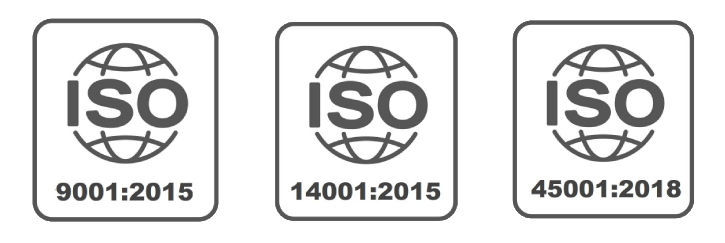Recently, batteryless and gridless solar hybrid inverters have become major players in the fast-developing field of renewable energy which has changed how we take advantage of solar energy. Besides, these new inventions promote green lifestyles with various advantages that include but are not limited to the following. This article will discuss the most salient attributes of batteryless solar hybrid inverters that are ideal for a greener future.
What is a hybrid solar inverter?
Hybrid solar inverter which is an intelligent product has features of ordinary solar inverter and battery inverter. They control the movement of electrical power from solar panels into the batteries and to the electric lines. This benefit includes being able to reduce the dependence of a facility upon the power grid by using stored extra energy from other units when it runs low. They also come as hybrid inverters that can be used for both on-grid and off-grid solar inverters and generally include smart meter functions where consumers can have a daily tracking of their energy productions and consumptions. Together they are an important step towards achieving greater efficiency, autonomy, and friendlier environments of the solar power systems.
Overview of solar batteryless and gridless hybrid inverter
Firstly, before discussing the benefits, what is a batteryless and gridless solar hybrid inverter? Advanced inverters do not require battery backup or are linked to the grid unlike traditional solar inverters. Through modern technology, they reduce their electricity usage and provide nonstop power service.
Benefits of Battery and Gridless Solar Hybrid Inverters
Energy Independence
An important advantage of these batteryless and gridless solar hybrid inverters lies in making energy independent. This will enable users to have a free-flowing supply of power even in hard-to-reach places and when there are interruptions in the main source of energy. There are other things that people associate with independence, like greater reliability of services and even independence from occasional blackouts in such vulnerable areas.
Reduced Maintenance Costs
The initial cost for batteries and grid connection is substantial in most conventional solar configurations. On the contrary, the ‘gridless’ solar hybrid inverter is a more economical alternative to the overall cost of installations. It does not incorporate batteries and as such, it eliminates the constant replacement cost which translates to savings on future expenses.
Environmental Sustainability
A global agenda for green production can be complemented by adopting solar hybrids without batteries and grids. However, it is worth mentioning that they generate pure ecological energy using carbon-free processes. It also reduces personal carbon foot print and helps in combating global warming by creating a conducive ecology.
Efficient Energy Utilization
These sophisticated inverters have a built-in technology that ensures efficient use of energy. Battery-less Solar Hybrid Inverters use smart algorithms and real time monitoring to efficiently turn sunlight into power. Such efficiency enhances system performance as well as reduces wastage and could thus be a preferred option for environmental consumers.
Advantages of batteryless and gridless solar hybrid inverter
Reliable Backup Power
These inverters function without using batteries but they are a trusted standby emergency power option. Some models have models that automatically change to other power sources without sunlight or save extra energy for the latter utilization when there is sunlight. By doing so, this guarantees uninterrupted power supply, thus dealing with reliability energy.
Scalability
The gridless solar hybrid inverter provides scalability that allows users to easily grow their solar setups. This scalability benefits businesses that expect to grow their energy capacity in the future, or change needs with minimal costly systems modifications.
How Battery and Gridless Solar Hybrid Inverters Work
Solar Power Harvesting
The inverters are designed using sophisticated technology that ensures maximum solar energy extraction. Sunlight is captured by the photovoltaic cells that transform into electrical energy directed to the inverter.
Inverter Functionality
Inverter provides an interface for capturing solar energy and transforming it into suitable AC electricity. Therefore, it is an important element in such systems as batteryless and gridless solar hybrid inverters.
Integration with Energy Storage
Some of them run on inverters and not conventional batteries even though they can be added to an energy storage system in some cases. Users have the option to store excess energy for utilization in sunless times.
Applications of Battery-less and Gridless Solar Hybrid Inverters
Residential Use
Solar hybrid inverters without any batteries or any ties to a grid are becoming more popular in residential applications. These are cost-effective, sustainable energy solutions for homeowners who want to cut carbon dioxide emissions.
Commercial and Industrial Installations
These inverters are highly scalable which benefits businesses and any industry that needs to meet the different kinds of energy required. Due to this flexibility, they are well suited for small business applications as well as large-scale manufacturing plants.
Remote and Off-Grid Areas
Traditional power infrastructure is usually not available in remote, off-grid areas. These regions with underserved energy needs can be adequately powered by batteryless and gridless solar hybrid inverters.
Conclusion
This brings us to conclude that these Battery-less and Gridless Solar Hybrid Inverters are an emerging trend in the world of renewable energy. These inverters promote total independence in the production of solar energy for purposes such as energy independence, cost efficiency, and environmental friendliness. One must accept these innovations as technology progresses toward a cleaner, greener, and more sustainable future.





